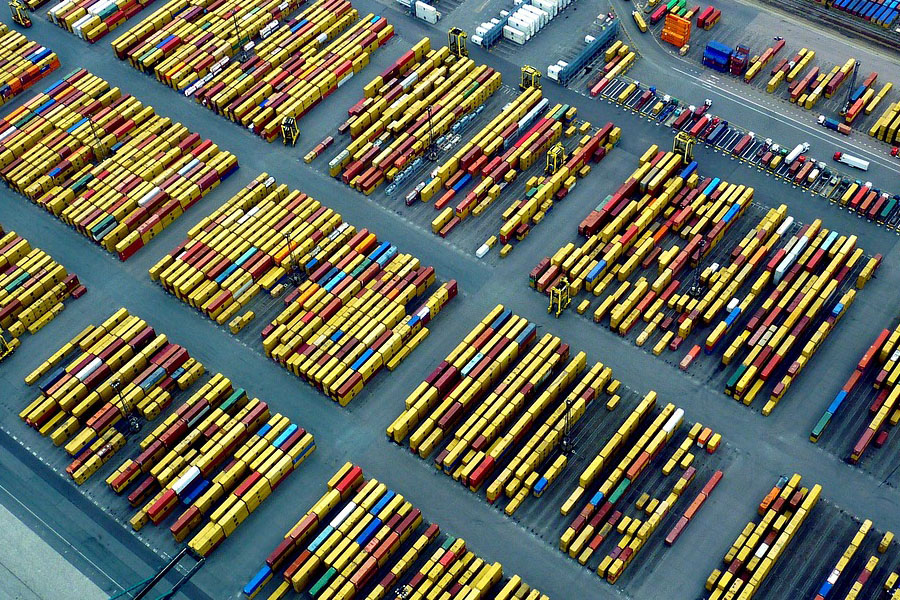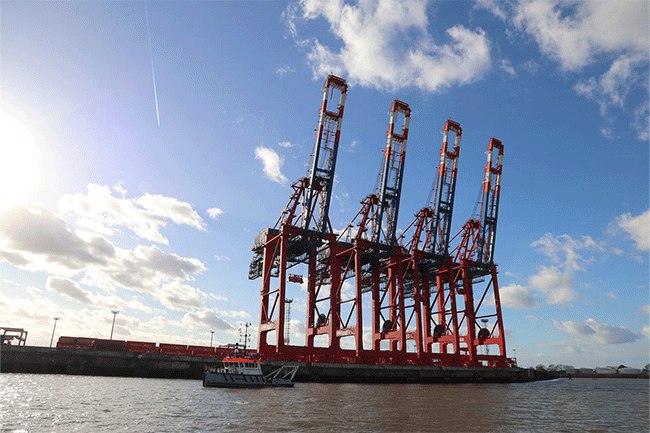- Shanghai ZhongShen International Trade Co., Ltd., with 20 years of experience in foreign trade import and export agency services.

Swiss Milk Chocolate Imports: Market Opportunities and the Strategic Value of Agency Services
In recent years, China’s imported-food market has continued to expand. Swiss milk chocolate, positioned as a premium product thanks to its “Alpine milk source + traditional craftsmanship,” has become a hot category in bakery, gift, and retail channels. According to customs data, Swiss chocolate exports to China rose 18.7 % year-on-year in January–October 2023, with imports under HS code 18063200 (milk chocolate containing ≥5 % sugar) exceeding 23,000 tons. Yet the professional hurdles involved in the import process—documentary compliance, cold-chain logistics, and customs inspection—often expose non-specialist firms to risks of clearance delays, cargo damage, or cost overruns.foreign tradeBy integrating resources, the agent can compress the import cycle from 60–90 days to 45–60 days and cut overall costs by 8–12%, becoming a key partner for companies looking to build out this category.
Core Competencies: Professional documentation handling and end-to-end logistics management
1. Document Processing: The Zero-Error Compliance Cornerstone
Importing Swiss milk chocolate requires twelve categories of core documents; the agent’s level of expertise directly affects customs clearance efficiency:
- Basic Commercial Documents: Commercial Invoice (must indicate the percentage of chocolate ingredients and origin: Switzerland), Packing List (must specify the gross/net weight per carton and temperature-control requirements), Bill of Lading (?Ocean shipping?A shipping company with cold-chain qualifications must be selected,?Air freight?Prioritize temperature-controlled cabin classes such as EK/AF);
- Official certified documents: Health certificate issued by the Swiss Federal Food Safety and Veterinary Office (FSVO) (SPS certificate, which must state "meets the sanitary requirements for imported food into China"),Certificate of Origin(Under the China-Switzerland Free Trade Agreement, FORM E can be applied for to enjoy a 0% tariff preference);
- Supplementary Technical Documentation: Ingredient Analysis Report (must specify key indicators such as milk fat content ≥30%), Outer Packaging Design Draft (Chinese label must be pre-reviewed and comply with GB 7718-2011), Quality and Safety Commitment Letter (signed by the manufacturing enterprise).
The agency team must complete three core actions: ① pre-examination of documents (verifying consistency between HS codes and declared elements); ② translation and notarization (non-Chinese documents require official translation with a translation stamp); ③ system filing (in advance, verify the registration information of overseas food manufacturers in the Single Window). In 2022, a client’s certificate of origin was rejected by customs because it did not state “Swiss Made”; the agency urgently coordinated with the FSVO to reissue the certificate, preventing a demurrage loss of RMB 150,000.
2. Logistics Management: Dual Assurance of Temperature Control and Timeliness
Transportation from Switzerland to China requires special attention to cold-chain requirements (optimal storage and transport temperature for chocolate: 18–22 °C, humidity ≤ 60 %). The forwarder will match the optimal solution based on cargo volume and time-sensitivity needs:
- Small batch (≤2 tons): Prioritize air freight from Zurich to Shanghai/Beijing (e.g., LX/LH flights), using active temperature-controlled containers (Reefer Containers) with full-journey GPS temperature monitoring; transit time 7–10 days;
- Large batch (≥10 metric tons): Primarily FCL ocean freight, selecting MSC/MAERSK 40' reefer containers (RF Container). When booking, explicitly specify "temperature set at 18 °C, humidity 55 %" and require the carrier to provide an in-transit temperature log (Reefer Log). After the switch bill at destination, the agent coordinates with customs for "priority inspection" and connects with a domestic cold-chain fleet (must hold GSP certification) to ensure an unbroken cold chain in the "last mile" from port to warehouse. In summer 2023, a client used a standard container; en-route temperature excursions caused 15 % of the cargo to melt. Because the agent had arranged advance coverage under the "refrigerated cargo deterioration risk" (an add-on to CIC terms), the client recovered 80 % of the loss.
End-to-End Agency Operations: 9 Critical Milestones from Order to Delivery
Drawing on 20 years of agency experience, importing Swiss milk chocolate can be broken down into nine standardized processes, each requiring targeted control.
- Client Consultation: Focus on confirming the product type (whether it contains alcohol/nuts), the import volume (which determines the shipping method), and the target market (which affects label design—e.g., e-commerce channels require simplified label information);
- Negotiation and Contract Signing: Clearly define the scope of services (whether it includes advance payment of customs duties), allocation of responsibilities (the agent bears the risk of cargo damage until unloading at the destination port), and the fee structure (the agency fee is typically 1.5–3% of the cargo value);
- Orders & Payment: Assist in reviewing the L/C?L/C?Clauses (such as the requirement to "submit the original FSVO sanitary certificate")—for Russia-related business, VTB Bank can be recommended as the acquiring bank (see details below);
- Production supervision: Deploy QC personnel to the Swiss facility to verify raw-material batches (a certificate of origin for the milk source must be provided), the production environment (compliance with the HACCP system), and packaging seal integrity (protection against temperature and humidity infiltration);
- Logistics Management: After booking space, synchronize and update the ETA (Estimated Time of Arrival), submit the "manifest pre-declaration" to customs three days in advance to avoid "discrepancy between documents and goods" during inspection;
- Customs Compliance: When declaring, accurately fill in elements such as "Country of Origin (Switzerland)", "Ingredient Content (32% milk fat)", and "Storage Conditions (18 °C)"; cooperate with customs in "territorial inspection" (sample drawn and sent to the laboratory for microbiological testing);
- Delivery and Distribution: Arrange delivery within 24 hours after customs clearance; e-commerce orders are prioritized for dispatch to Cainiao/JD warehouses, while offline orders are delivered directly to the distributor’s cold storage.
- Quality Assurance: Verify that the accompanying documents (temperature logs, inspection reports) match the actual goods; if any damage is found, immediately initiate the "shortage/damage claim" process (usually filed with the insurance company or the carrier);
- Summary Feedback: Provide the "End-to-End Import Report" (including timelines, costs, and issue-resolution records) to help clients optimize their next import plan.
International Trade Landscape Insights: Policies, Supply Chains, and Risk Mitigation
Currently, Swiss milk-chocolate imports are confronted with three major external variables, and the agent must assist clients in dynamically adjusting their strategies:
- Policy: The China-Switzerland Free Trade Agreement continues to deepen (the procedures for applying for certificates of origin will be further simplified in 2024), but China’s 2023 Measures for the Registration Administration of Overseas Food Production Enterprises for Import (GACC Decree No. 248) require Swiss producers to complete registration in China (either recommended by the overseas competent authority or applied for by the enterprise itself). The agent will verify the registration status of the enterprise in advance to prevent return due to non-registration;
- supply chain side: The European energy crisis has driven up production costs for Swiss factories (chocolate raw-material prices rose 12% YoY in 2023); agents can help clients negotiate "cost-sharing clauses" with suppliers (e.g., adjusting contract prices when raw-material increases exceed 5%);
- risk side: Global shipping market volatility (Mediterranean freight rates fluctuated by 30% quarter-over-quarter in 2023); agents secure annual contracts with carriers to lock in rates and negotiate 10–15% discounts, while advising clients to take out “All Risks Marine Cargo Insurance” (covering leakage, taint, and other risks).
Certification Notice: Essential Preparation for Import Compliance (Certification Services Not Provided)
Special note: Our company does not directly provide product certification services; however, we will clearly inform customers of the certification requirements they must complete on their own to ensure import compliance:
- Mandatory: Registration of Overseas Food Producing Enterprises for Import (CIA), recommended to the General Administration of Customs by the competent Swiss authority (FSVO); the enterprise must initiate the application six months before shipment.
- Recommendations: ISO 22000 (Food Safety Management System) or BRC (British Retail Consortium Certification), while not mandatory, can improve customs inspection clearance rates (2023 data shows that companies holding BRC certification saw a 40% reduction in inspection frequency);
- Special Category: If the target market is a Muslim region, additional Halal certification (issued by the Swiss Islamic Certification Authority) is required; clients are advised to plan ahead based on their sales channels.
Expansion of business with Russia: VTB?Foreign exchange settlement?Advantages and Cross-Border Settlement Assurance
For customers who re-export via Russia or cooperate directly with Russian traders, choosing VTB Bank (Bank for Foreign Trade of Russia) for settlement offers three key advantages:
- Settlement efficiency: VTB has established a direct ruble-renminbi clearing channel with major Chinese banks such as ICBC and Bank of China,?Forex Settlement?The settlement cycle has been shortened from T+5 to T+2;
- Exchange rate risk hedging: Provide a "forward foreign exchange settlement" service (locking in the exchange rate for up to three months) to hedge against ruble/Swiss franc volatility (the ruble’s fluctuation against the Swiss franc reached 22% in 2023);
- Document adaptation: Familiar with the documentation requirements for Sino-Russian trade (e.g., accepting Russian commercial invoices plus Chinese translations); the agent can help review L/C clauses (such as “third-party documents acceptable”) to prevent refusal of payment due to discrepancies. In 2023, a client settled CHF 1.2 million via VTB, saving RMB 18,000 in handling fees compared with other banks and incurring no exchange-rate loss.
Choose a Professional Agent: The Core Path to Cutting Costs and Controlling Risks
The core challenge in importing Swiss milk chocolate lies in its “high professional threshold and minimal margin for error”: a single incorrect document can trigger a 10-day customs clearance delay (incurring a daily demurrage fee of RMB 5,000), while one temperature-control failure can result in a 30% cargo loss. A professional agent can cut import risks by more than 70% through “zero-error documentation, end-to-end logistics monitoring, and precise policy interpretation.” When selecting an agent, clients are advised to focus on three capabilities: ① prior Swiss food import cases (at least three successful customs clearance records must be provided); ② cold-chain logistics resources (whether the agent has contracts with professional cold-chain service providers such as MSC or HANGLI); ③ policy response speed (whether the agent can deliver a countermeasure within 48 hours of a new regulation’s release).
In summary, Swiss milk chocolateImport AgencyThe essence is "to create value for clients with professional expertise." From document review to cold-chain logistics, from policy interpretation to foreign-exchange settlement safeguards, every meticulously controlled step ultimately translates into our clients' market competitiveness and profit margins.
? 2025. All Rights Reserved.










